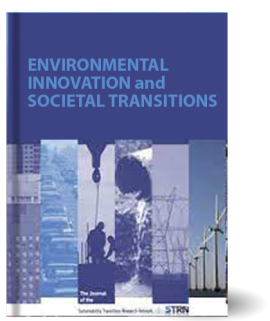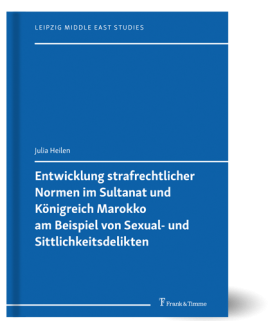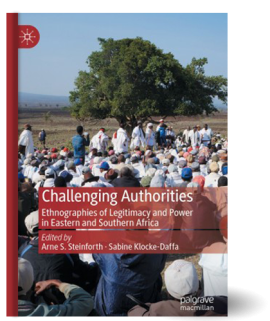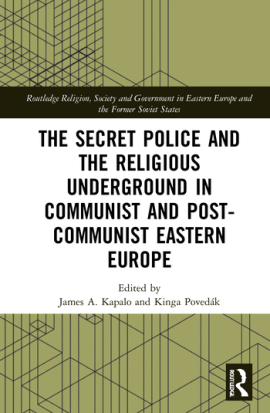|
If the newsletter does not display properly, please click here. |

|
|||||
|
|||||
|
Dear friends and colleagues, This week, we would like to draw your attention to two forthcoming KFG workshops that we are very much looking forward to: “Enshrining the Past: Religion and Heritage-Making in a Secular Age” from 27–29 October and “Religion as an Object of Historical and Social Scientific Study: Global Perspectives” from 3–5 November. Our colloquium series is taking a break and will be back on 24 November. We would also like to present three new publications by our KFG members and draw your attention to a book launch. This Wednesday Weekly will conclude with our recommendation for the great DOK Film Festival Leipzig. Enjoy and have a great week! Anja |
|||||
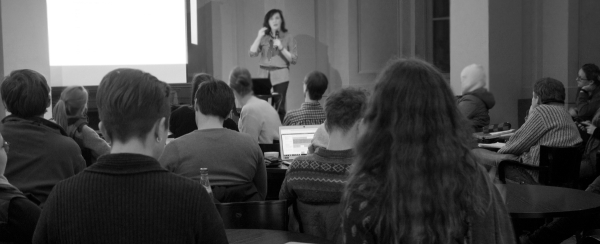
|
|||||
KFG-Workshop I “Enshrining the Past: Religion and Heritage-Making in a Secular Age”, 27–29 OctoberOur Associate Member Marian Burchardt and Senior Researcher Nur Yasemin Ural will be hosting the workshop on “Enshrining the Past: Religion and Heritage-Making in a Secular Age” from 27–29 October. This workshop seeks to explore the contours of the politics around cultural heritage and the ways it is enmeshed with the religious-secular dynamics in societies past and present suggesting that these concerns manifest in three substantive ways, each provoking suggestive research questions: legal frames, immaterial values, and material patrimony. Registration for participation in the workshop is still possible. Please send us an e-mail. The workshop will take place as a hybrid event. The corresponding connection data will be made available to all registered participants shortly beforehand. Participation in presence may be possible, but please note that the number of places is limited to ensure the required COVID-19 security measures. If you would like to participate on-site, please also send an e-mail. If you would like to attend only individual presentations and/or panels, please indicate this when registering. Workshop Dates: 27–29 October 27 October | 2.00 p.m.–7.00 p.m. (CET) Leipzig University, Seminar Building, Universitätsstraße 1, 04107 Leipzig AND Online via zoom
|
|||||
KFG-Workshop II “Religion as an Object of Historical and Social Scientific Study: Global Perspectives”, 3–5 NovemberOne week later, our Associate Member Florian Zemmin invites to his workshop on “Religion as an Object of Historical and Social Scientific Study: Global Perspectives”. This workshop will bring together case studies and theoretical reflections on the study of religion as an object of historical and social scientific inquiry in different academic contexts in the Americas, Asia, Europe, and the Middle East. Special interest lies on the global presence and characteristics of religion as an object of study in the most pertinent academic disciplines: History of Religion; Comparative Religious Studies; Sociology; Anthropology and Political Science (excluding Theology and Philosophy). Again, this workshop takes place as a hybrid event and registration for virtual participation is possible via e-mail. The corresponding connection data will be made available to all registered participants shortly beforehand. Participation in presence is limited to a certain number of people due to the COVID-19 security measures. If you are interested in participating on-site, please contact us. Workshop Dates: 3–5 November 3 November | 11.30 a.m.–7.00 p.m. (CET) Leipzig University, Strohsack, Nikolaistraße 8–10, 04109 Leipzig AND Online via zoom
|
|||||
|
|||||
|
|||||
|
|||||
|
|||||

|
|||||
DOK Leipzig 2021: International Leipzig Festival for Documentary and Animated Film, 25–31 OctoberDOK Leipzig looks forward to welcoming you back! Whether you will visit the cinema in Leipzig or join the event online, you will take part in an intense and inspiring festival week and celebrate the film community. This year, the films at DOK Leipzig once again represent a wide variety of cinematic approaches, in terms of both their themes and their formal criteria. The film-makers’ works document current political crises, seek out historical vestiges and sketch introspective portraits. DOK Leipzig is the largest German and second largest European festival for artistic documentary film. It is also the oldest documentary film festival in the world. In its tradition, DOK Leipzig stands for films that stand up for peace and human dignity. The festival celebrates the free spirit, the free word and the consciously placed image. During the festival week, there will be shown 170 films in cinemas throughout Leipzig. In addition, from 1–14 November, the festival will present more than 70 documentary and animated films as Video on Demand.
|
|||||
|
If you have any content that you think suits the purpose of the weekly, please feel free to send it to us at multiple-secularities@uni-leipzig.de. |
|||||
|
Kolleg-Forschungsgruppe "Multiple Secularities - Beyond the West, Beyond Modernities" Nikolaistraße 8-10, 04109 Leipzig Mail: multiple-secularities@uni-leipzig.de |
